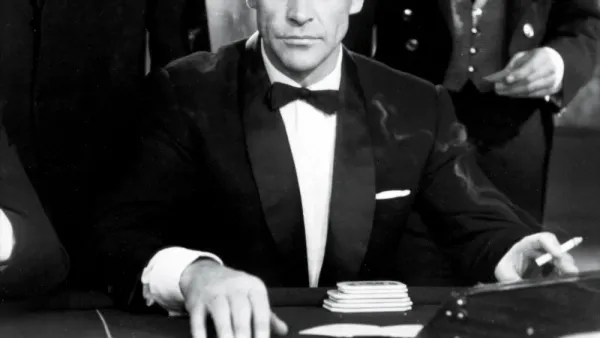Is it right to turn our backs on Churchill?
Winston Churchill: A Complex Legacy in Historical Context.

Retrospect offers a dual lens through which we may view Winston Churchill—a towering wartime leader whose resolute defiance during World War II saved Britain and helped shape a postwar order, and simultaneously, a man whose imperialist policies, racial prejudices, and decisions in colonies like India have come under increasing scrutiny in our modern, more egalitarian age. In 2025, as we reexamine history through both the prism of context and evolving moral standards, the question arises: Is it fair to retrospectively distance ourselves from Churchill’s legacy?
Churchill’s leadership during Britain’s darkest hours is hard to overstate. His stirring speeches, strategic foresight, and indomitable spirit rallied a nation under siege and forged the Anglo-American “special relationship” that remains pivotal even today. For many, these qualities encapsulate the very essence of democratic defiance in the face of tyranny—a narrative that has long been celebrated in textbooks, museums, and popular culture alike.
Yet, as new scholarship and public discourse have emerged in recent years, a growing chorus voices the need to question the cost of that legacy. Churchill’s imperial vision was inextricably linked with colonial subjugation; his dismissive remarks about nonwhite peoples and policies that exacerbated crises such as the Bengal famine have sparked debates about whether his celebrated image can be reconciled with modern ideals of equality and human rights. Critics argue that retaining an uncritical reverence for Churchill effectively whitewashes the brutal realities of empire and obscures the suffering of millions whose voices were marginalized at the time.
From a 2025 perspective, the dilemma is not simply whether to repudiate Churchill entirely but rather how to integrate a fuller, more nuanced picture of his multifaceted legacy into our collective memory. History is not static; it is continuously reassessed as societal values evolve. Retrospective distancing, when it leads to a wholesale rejection of Churchill’s contributions to the defeat of fascism, risks throwing out the proverbial baby with the bathwater.
Instead, a balanced approach that acknowledges both his pivotal wartime leadership and his problematic imperialist attitudes is called for—a reappraisal that neither sanitizes his record nor erases its historical impact.
Summary of Key Findings
Winston Churchill remains one of the most polarizing figures in modern history, celebrated as the defiant leader who rallied Britain during its “darkest hour” in World War II yet condemned for his imperialist policies, racial hierarchies, and role in humanitarian crises. His legacy is contested between those who emphasize his strategic foresight and oratorical brilliance in defeating fascism and those who critique his reinforcement of colonial oppression and morally questionable wartime decisions. We evaluate the fairness of “turning our backs” on Churchill by analyzing his multifaceted impact on geopolitics, social policy, and collective memory.
Churchill’s Leadership During World War II
Strategic Foresight and Defiance Against Nazism
Churchill’s warnings about Adolf Hitler’s rise began as early as 1934, when he denounced Nazi aggression in a BBC broadcast, declaring, “We shall fight him by land, sea, and air” to eradicate fascism[1]. His resolve became pivotal after becoming Prime Minister in 1940, as Britain stood isolated following the fall of France. The “Dunkirk spirit,” amplified by his speeches, transformed a military retreat into a symbol of national resilience[2]. His alliance-building with Franklin D. Roosevelt and Joseph Stalin, despite ideological differences, underscored his pragmatism in forming the Grand Alliance[3].
Critics, however, note strategic blunders, such as the failed Dardanelles Campaign in World War I and the diversion of resources to Greece in 1941, which weakened British defenses in North Africa[3:1][4]. The loss of Singapore in 1942 further tarnished his military record, exposing imperial overstretch[3:2]. Nevertheless, his ability to inspire through rhetoric, as seen in the “finest hour” speech, solidified his image as a wartime icon[5][2:1].
Controversial Policies and Beliefs
Racial Hierarchies and Imperialism
Churchill’s views on race and empire remain central to modern critiques. In 1937, he asserted that “a stronger race, a higher-grade race” had rightfully displaced Indigenous peoples in Australia and the Americas, reflecting his belief in a racial hierarchy[6]. As Secretary of State for the Colonies, he supported brutal suppression of anti-colonial movements, including the use of poison gas against Iraqi insurgents in 1920[6:1][7]. His dismissal of Indian self-rule, epitomized by his derogatory remarks about Gandhi, highlighted his commitment to maintaining British dominance[8][9].
The Bengal Famine of 1943
One of the most damning accusations against Churchill is his handling of the Bengal Famine, which killed over 3 million people. Critics argue that his policies exacerbated the crisis: diverting food to British troops and rejecting aid offers, stating Indians would “breed like rabbits” if helped[7:1][9:1]. Defenders contend that wartime logistics and Japanese occupation of Burma were primary causes, though historians like Madhusree Mukerjee emphasize Churchill’s indifference[7:2].
Eugenics and Social Darwinism
Churchill’s support for eugenics, including the forced sterilization of the “feeble-minded,” reflected broader Edwardian anxieties about racial “degeneracy”[10]. In 1910, he advocated segregating the mentally ill to prevent their “curse” from spreading, framing it as a “Christian and scientific” duty[10:1]. Such views, though common among his contemporaries, underscore the dark undercurrents of his progressivism.
Post-War Political Downfall and Public Perception
The 1945 Election Rejection
Despite his wartime acclaim, Churchill’s Conservative Party suffered a landslide defeat in 1945. Voters rejected his fearmongering about socialism and prioritized Labour’s welfare-state vision[11]. The loss revealed public fatigue with imperial nostalgia and a desire for social reform—a rebuke of Churchill’s Victorian paternalism[11:1][9:2].
Rehabilitation and the “Churchill Cult”
Churchill’s posthumous glorification, particularly after the 1982 Falklands War, transformed him into a symbol of British exceptionalism[9:3]. Biographies and films, such as The Darkest Hour, sanitized his complexities, framing him as an unwavering defender of liberty[7:3][9:4]. This “cult” has been weaponized in political discourse, with figures like Boris Johnson invoking Churchill to legitimize Brexit as a modern-day “stand against Europe”[9:5][12].
Churchill’s Vision for Europe and Global Order
Advocacy for European Unity
In his 1946 Zurich speech, Churchill urged Europeans to “turn our backs upon the horrors of the past” and forge a “United States of Europe”[13][14][15]. While he excluded Britain from this federation, his vision influenced the Council of Europe’s creation and later EU integration[13:1][16]. This contrasted with his earlier skepticism of U.S. power, which he privately called “arrogant” and “hostile”[17].
Cold War Realpolitik
Churchill’s 1946 “Iron Curtain” speech framed the Soviet Union as a totalitarian threat, aligning the West against communism[16:1]. Yet his alliance with Stalin during the war, described by Evelyn Waugh as supporting “communist louts,” illustrates the moral compromises of realpolitik[3:3].
Modern Reassessment and Cultural Debates
Statue Vandalism and Decolonization Movements
The 2020 Black Lives Matter protests reignited debates over Churchill’s legacy, with his Parliament Square statue defaced with the word “racist”[12:1]. Critics argue that memorializing him whitewashes colonial violence, while defenders decry “cancel culture” erasing historical nuance[8:1][12:2]. Institutions like the ANU have installed critical plaques alongside his statues, acknowledging his contested legacy[9:6].
Academic Reckoning
Historians like Tariq Ali and Richard Toye contextualize Churchill as a product of empire, whose racism was unexceptional for his time but indefensible today[8:2][9:7]. Conversely, Andrew Roberts defends him as a “flawed giant” who upheld democracy against tyranny[3:4]. This dichotomy reflects broader tensions between hagiography and historical accountability.
Conclusion: Balancing Contributions and Flaws
To “turn our backs” on Churchill entirely risks oversimplifying a legacy intertwined with both liberation and oppression. His leadership in defeating Nazism saved millions, yet his imperialist policies caused immense suffering. Fairness demands a nuanced appraisal: celebrating his wartime resolve while condemning his racism and colonialism. As societies grapple with historical memory, Churchill’s story underscores the necessity of critical engagement—neither deifying nor erasing the past, but understanding it in full complexity. As he himself noted, “History will be kind to me, for I intend to write it”[18]. Yet history’s verdict must weigh all evidence, ensuring that the horrors he opposed do not eclipse those he perpetuated.
https://www.parliament.uk/globalassets/documents/parliamentary-archives/Churchill-for-web-Mar-2014.pdf ↩︎
https://scholarworks.iu.edu/journals/index.php/iusburj/article/download/19650/25734/43601 ↩︎ ↩︎
https://thecritic.co.uk/issues/november-2024/no-churchill-wasnt-the-bad-guy/ ↩︎ ↩︎ ↩︎ ↩︎ ↩︎
https://en.wikipedia.org/wiki/Winston_Churchill_in_politics:_1900–39 ↩︎
https://abcnews.go.com/International/winston-churchills-darkest-hours-complicated-past-change-legacy/story?id=53531618 ↩︎ ↩︎ ↩︎ ↩︎
https://blogs.sussex.ac.uk/snapshotsofempire/2024/02/28/winston-churchill-in-the-culture-war-defending-an-icon/ ↩︎ ↩︎ ↩︎
https://theconversation.com/deconstructing-the-cult-of-winston-churchill-racism-deification-and-nostalgia-for-empire-185589 ↩︎ ↩︎ ↩︎ ↩︎ ↩︎ ↩︎ ↩︎ ↩︎
https://winstonchurchill.org/publications/finest-hour/finest-hour-152/leading-churchill-myths-churchills-campaign-against-the-feeble-minded-was-deliberately-omitted-by-his-biographers/ ↩︎ ↩︎
https://www.history.co.uk/article/the-day-the-uk-turned-its-back-on-churchill ↩︎ ↩︎
https://www.uncomfortableoxford.com/churchills-legacy-not-yet-set-in-stone ↩︎ ↩︎ ↩︎
https://european-union.europa.eu/principles-countries-history/history-eu/eu-pioneers/winston-churchill_en ↩︎ ↩︎
https://www.americanrhetoric.com/speeches/winstonchurchillunitedstatesofeurope.htm ↩︎
https://historicalarchives.europarl.europa.eu/en/buildings/churchill ↩︎ ↩︎
https://www.smithsonianmag.com/history/when-churchill-dissed-america-180970541/ ↩︎
https://winstonchurchill.org/resources/quotes/quotes-falsely-attributed/ ↩︎





